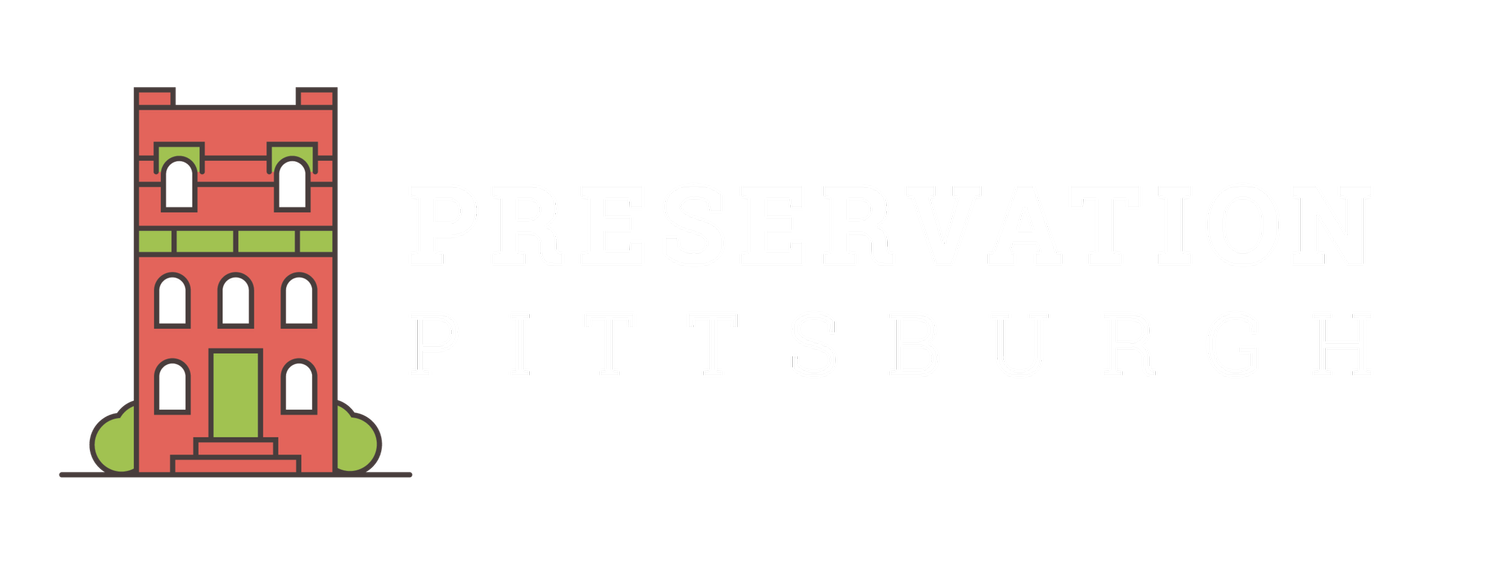Preservation Pittsburgh's history began with the demolition of a world-renowned Pittsburgh landmark, the Syria Mosque. The loss of this acoustically perfect and much-loved concert hall (the location is still a parking lot for UPMC) convinced a group of concerned citizens that there needed to be a grass-roots, activist preservation organization in town to take on looming historic preservation battles in the city.
Pittsburgh's fortunes were sliding in the 70's and 80's when the rest of America was dancing to the call of urban development projects that tore down historic, often intact buildings, and replaced them with interior-oriented malls, large-scale and non-descript office buildings filled with out of town chainstores. Although this period of economic downturn was an extremely difficult time for many Pittsburghers due to the closing of steel mills, the city still managed to keep a large percentage of its beautiful period architecture, pedestrian-scaled neighborhoods, and locally-owned businesses intact.
Unfortunately, as the City's fortunes began to rise, development interests increased too and civic projects that hoped to guaranteethis economic growth were often done at the expense of Pittsburgh's history and traditions. A surprising number of people--from CEO's to students--comment on the "feel" of Pittsburgh and speak warmly of the beautifully detailed architecture, traditional pedestrian-friendly neighborhoods and locally owned stores. To be able to move through significant historic buildings, to work and enjoy cultural refreshment in and around them, is a value Preservation Pittsburgh stands for. Such quality of life issues, unfortunately, haven't been easy to demonstrate on balance sheets, even though here in Pittsburgh, they are enjoyed by all.
Since our founding, we continue to grow as an organization to be a strong advocate for preservation in Pittsburgh.
Preservation Pittsburgh Archives
Hard copies of our archives from 1991-2008 are housed at the Archives and Manuscript Collection at the University of Pittsburgh Library System. Additional information on these records may be accessed here.




